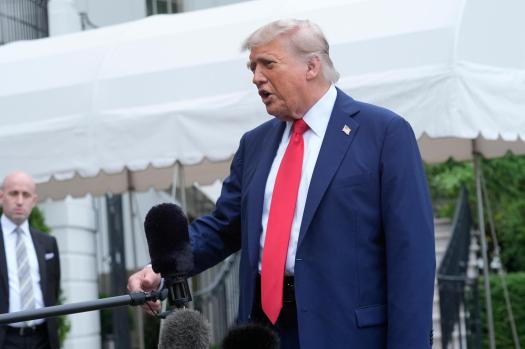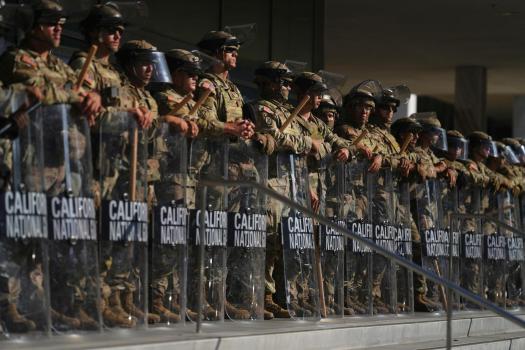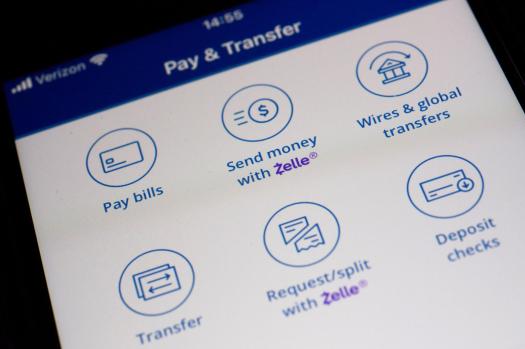Written by Nicholas R. Cardi
On Monday, immigration and administration attorneys argued whether President Donald Trump can utilize a wartime act from the 18th century against a Venezuelan gang. The issue is expected to be determined by the U.S. Supreme Court.
Related Articles
-
Federal judge seeks clarity on whether birthright citizenship order means babies could be deported
-
Netanyahu to head to Washington next Monday as Trump presses for a ceasefire in Gaza
-
Watch live: Senate votes on amendments to Trump s big, beautiful bill
-
Bush, Obama and a tearful Bono fault Trump s gutting of USAID on agency s last day
-
What s in the latest version of Trump s big bill moving through the Senate
In the most recent round of a complex legal struggle involving Trump’s March invocation of the Alien Enemies Act of 1798 against the Tren de Araguagang, the lawyers argued before a three-judge panel of the 5th Circuit Court of Appeals in New Orleans.
The only other times the law was applied were during the War of 1812 and World Wars I and II. Lee Gelernt, an ACLU lawyer, told the three-judge panel that Trump should not have used it. According to Gelernt, this has only been used three times in significant conflicts, and it is currently being used in relation to a gang.
In support of the administration, Deputy Assistant Attorney General Drew Ensign stated that courts cannot question a president’s assessment that the United States is under foreign attack and needs to take exceptional measures to defend itself. He pointed out that the high court had only ever considered the act once, in a case that took place after World War II ended in Europe. In that case, the court ruled that it could not question then-President Harry Truman’s claim that suspected Nazis should still be held under the act because the war was still going on.
According to Ensign, the president should have the highest respect when it comes to security and international policy issues.
On more technical grounds, Trump’s invocation has already been heard twice by the country’s top court. First, the court determined that individuals who were suspected of belonging to the TDA should be given a fair amount of time to contest their designation in court; nevertheless, they could only contest their deportations in the places where they were detained. A federal judge in Washington issued the act, which ended a nationwide ban on deportations. The judge later concluded that the administration may have violated the act by disobeying his orders and continuing to transport certain people detained under the AEA to an El Salvadorian prison.
The high court then intervened a second time after the ACLU and its supporters started bringing legal action around the nation and winning decisions that prohibited deportations under the legislation. An uncommon post-midnight ruling was made in April, preventing the administration from deporting residents of a portion of north Texas where there was still no active ruling against removal.
The high court ordered the 5th Circuit to examine the matter and determine how long those detained should have to contest their classification after many lower court judges determined that the AEA could not be used against a gang.
After first giving little notice, the government now claims that seven days should be the standard for filing an appeal. During World War II, the ACLU fought in favor of a 30-day detention period for suspected Nazis.
One judge selected by Trump, one by former President George W. Bush, and one by Biden made up the panel that heard arguments on Monday. Its decisions may be appealed immediately to the top court or to the full Fifth Circuit, one of the nation’s most conservative federal appeals courts.
According to Trump, TdA is operating at the direction of the Venezuelan government. It can be used to prevent invasions or predatory incursions, according to the Act.
However, the ACLU contends that the gang’s relationship with the Venezuelan government is at best tenuous and that there was minimal cooperation between TdA and the Caracas government, according to an assessment conducted by 17 separate intelligence agencies. Gelernt said that the AEA might have been utilized against the mafia or any other criminal organization operating in the United States during the previous 200 years that had tangential ties to other nations, according to the administration’s standards.








